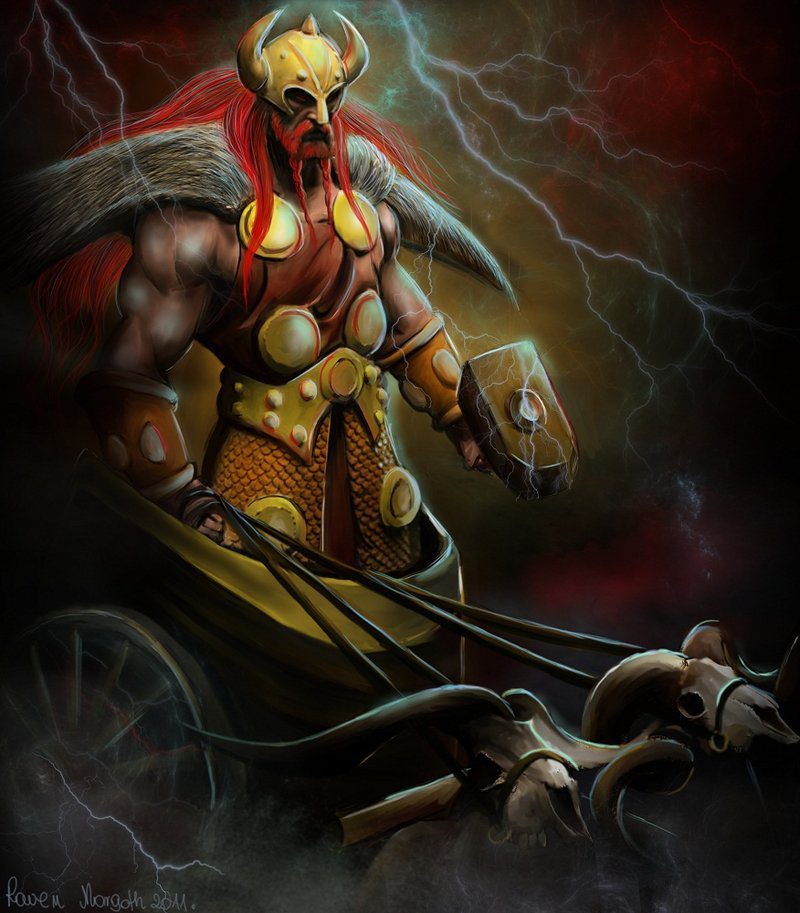The Greek and Norse civilizations had their own set of gods, each with their own strengths and weaknesses that set them apart. Greek gods were powerful, possessing great strength and intelligence with the ability to grant talents and skills to humans. However, their fatal flaw was their pride and arrogance, causing chaos and displaying human-like qualities of manipulation and betrayal. In comparison, Norse gods had their unique strengths, possessing powerful artifacts and abilities. However, they struggled with mortality and vulnerability to manipulation and were hindered by their mischievous nature, leading to destruction and chaos. Regardless of their limitations, both pantheons played integral roles in their respective civilizations and continue to inspire people worldwide.
The Strengths and Weaknesses of Greek Gods vs. Norse Gods
The ancient Greeks and Norse civilizations had their fair share of gods, goddesses, and mythological characters. Each pantheon had gods with unique strengths and weaknesses, making them distinct from one another. This article highlights the key strengths and weaknesses of Greek Gods vs. Norse Gods.
Greek Gods
Strengths
Greek Gods were superseded in power, possessing great strength, intelligence and other formidable abilities, as well as the ability to grant humans talents and skills.
Zeus, for instance, commanded the skies and heavens, hurling lightning bolts and storms at his foes, while Apollo controlled the sun and music. Aphrodite represented beauty, love and sexuality, and Hermes was the patron god of travelers, thieves, and diplomats.
One of the significant strengths of the Greek gods was their abilities to shape-shift and perform miraculous feats of strength and endurance, such as the commonly known god of the sea, Poseidon, controlling the seas.
Weaknesses
As much as Greek gods had their strengths, they also possessed a fair share of flaws, limitations, and weaknesses. The gods’ fatal flaw was their pride and arrogance, persistently finding ways to undermine one another and cause chaos.
Athena and Poseidon, for example, engaged in endless battles for supremacy, while Zeus’s affairs and betrayals caused strife within the pantheon, leading to the emergence of demi-gods like Hercules.
Another significant weakness of Greek gods was their morality, often displaying human-like qualities and engaging in acts of manipulation, lies, and betrayal, even against their own worshippers.
Norse gods
Strengths
The Norse gods were tremendous in their own right, possessing their unique strengths and abilities that set them apart from the Greek Pantheon.
Odin was the chief god of the Norse mythology, symbolizing wisdom, magic and communication. Thor, on the other hand, was the God of Thunder and well known for his strength and ferocity in battle, while Loki was a trickster god with the power to cause both harm and mischief.
The gods owned or wielded powerful artifacts to aid them in their battles, like Thor’s infamous hammer and Odin’s spear, gaining advantages over their enemies in physical combat.
Weaknesses
Despite their abilities and strengths, Norse gods had their own share of vulnerabilities and limitations.
Loki, for instance, was well-known for his intelligence and cunning, but his mischievous nature often led to destruction and chaos, making him the scapegoat for various catastrophes.
Norse gods also struggled with mortality, often depicted as dying and resurrecting, falling ill or battling anyone who dare challenge their authority with severe consequences.
Conclusion
Both pantheons of gods have their unique strengths and weaknesses. Although Greek gods were powerful, their morality and arrogance often led to their downfall, while Norse gods struggled with mortality and was hindered by their vulnerability to manipulation and betrayal.
Regardless of their limitations, they played integral roles in their respective civilizations and continue to inspire countless tales of mythology, inspiring people around the world.
